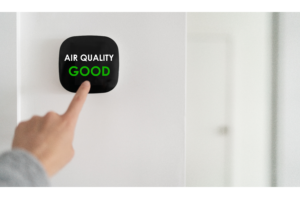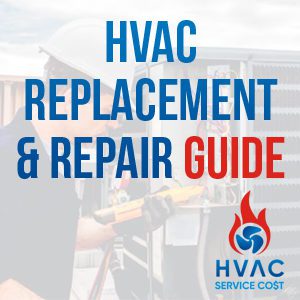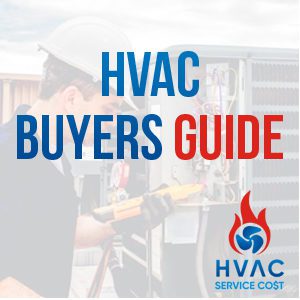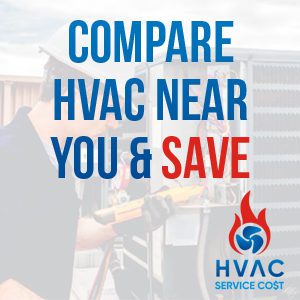
Indoor Air Quality and Your Health: The HVAC Connection
In the modern world, where we spend approximately 90% of our time indoors, the quality of the air we breathe indoors has never been more crucial to our health and well-being. While HVAC (Heating, Ventilation, and Air Conditioning) systems are central to maintaining comfortable living and working environments, their role in influencing indoor air quality (IAQ) is often underestimated. This blog delves into the intricate connection between your HVAC system and indoor air quality, exploring the health implications of poor IAQ, and offering actionable advice on leveraging your HVAC system to ensure the air in your home is not just comfortable, but also clean and healthy.
Understanding Indoor Air Quality (IAQ)
IAQ refers to the air quality within and around buildings and structures, especially as it relates to the health and comfort of building occupants. Factors that influence IAQ include pollutants from indoor sources (like combustion processes, building materials, and household cleaning products), outdoor air contaminants seeping indoors, and how well the building’s ventilation system is operating.
The Health Implications of Poor IAQ
Poor indoor air quality can have immediate and long-term effects on health. Short-term exposure to pollutants can cause irritation of the eyes, nose, and throat, headaches, dizziness, and fatigue, often mistaken for seasonal allergies or colds. Long-term exposure can lead to more serious conditions, including respiratory diseases, heart disease, and even cancer. Vulnerable populations, such as children, the elderly, and those with pre-existing respiratory and cardiovascular conditions, are particularly at risk.
The HVAC Connection
Your HVAC system plays a pivotal role in managing IAQ by:
- Controlling Humidity: High humidity levels can encourage the growth of mold, dust mites, and other allergens. Properly maintained HVAC systems keep humidity levels in check, reducing allergen proliferation.
- Filtering Air: HVAC filters capture dust, pollen, pet dander, and other particulate matter, preventing these pollutants from circulating through your home.
- Facilitating Fresh Air Exchange: Ventilation systems are designed to bring in fresh outdoor air and expel stale indoor air, reducing the concentration of indoor air pollutants.

Enhancing IAQ with Your HVAC System: Tips and Best Practices
- Regular Maintenance: Schedule annual HVAC inspections and regular maintenance checks to ensure your system is clean and functioning efficiently. This includes cleaning air ducts and changing filters regularly.
- Upgrade Your Air Filters: Invest in high-quality air filters with a high MERV (Minimum Efficiency Reporting Value) rating that can capture smaller particles. Consider HEPA filters for superior filtration, especially if you have pets or someone in the household has allergies.
- Consider Air Purifiers: For additional air quality improvement, especially in high-pollution areas or homes with allergy sufferers, integrating air purifiers with HEPA filters can further reduce airborne contaminants.
- Monitor Humidity Levels: Use a hygrometer to keep track of indoor humidity levels, aiming to maintain them between 30% and 50%. Use dehumidifiers or humidifiers as necessary to achieve these levels.
- Ventilate: Make use of kitchen and bathroom exhaust fans to remove contaminants directly from these areas. Consider installing a whole-house ventilation system for continuous air exchange.
- Limit Indoor Pollutants: Be mindful of the products you use indoors and opt for low-VOC (Volatile Organic Compounds) paints, cleaning products, and building materials. Ensure that combustion appliances are properly vented outdoors.
The Cost of Ignoring IAQ
Neglecting IAQ can not only lead to health issues but also impact the efficiency and lifespan of your HVAC system, leading to higher energy bills and costly repairs. Investing in IAQ is investing in the health of your household and the longevity of your HVAC system.
Advanced Air Purification Technologies
In the quest for cleaner air, technology offers sophisticated solutions that can complement your HVAC system:
- UV-C Germicidal Lights: Installed within your HVAC system’s ductwork, UV-C lights can neutralize airborne pathogens, including bacteria, viruses, and mold spores, as air circulates through the system.
- Activated Carbon Filters: While standard filters capture particulate matter, activated carbon filters are effective at adsorbing odors and volatile organic compounds (VOCs), providing a solution to chemical pollutants in your home.
- Photocatalytic Oxidation (PCO): PCO air purifiers use UV light and a catalyst to convert harmful contaminants into harmless substances like water and carbon dioxide, tackling pollutants at the molecular level.

Smart HVAC and IAQ Monitoring
Smart home technology has revolutionized the way we interact with our living spaces, including how we manage IAQ:
- Smart Thermostats: Beyond regulating temperature, some smart thermostats can monitor air quality and humidity levels, providing insights and alerts when the air quality deteriorates or when it’s time to replace filters.
- IAQ Sensors: Standalone IAQ sensors can monitor pollutants, humidity, and temperature in real-time, helping you understand your home’s air quality dynamics and make informed decisions.
Professional Assessments
While DIY strategies and technologies can significantly improve IAQ, consulting with an HVAC professional or an indoor air quality specialist can offer customized solutions based on the specific challenges of your home:
- Tailored Solutions: Professionals can assess your home’s air quality, identify specific issues, and recommend solutions tailored to your needs, whether it’s adjusting your HVAC system, suggesting specific air purifiers, or improving home ventilation.
- Installation and Optimization: Expert installation ensures that IAQ technologies are integrated correctly with your existing HVAC system for optimal performance. Professionals can also optimize your system settings for both comfort and air quality.
The Importance of Natural Ventilation
In addition to mechanical ventilation provided by HVAC systems, natural ventilation plays a crucial role in maintaining IAQ. Here are a few tips to enhance natural air exchange:
- Open Windows Strategically: When outdoor air quality is good, open windows to create cross-ventilation and flush out indoor pollutants.
- Use Window Treatments Wisely: Use drapes and blinds to control temperature and sunlight exposure while maximizing natural ventilation when possible.
Maintaining a Healthy Indoor Environment
Beyond technology and professional services, simple lifestyle adjustments can contribute to better IAQ:
- Indoor Plants: Some indoor plants can absorb certain pollutants, albeit at a slow rate. They can complement your air purification efforts and enhance indoor aesthetics.
- Minimize Pollutant Sources: Be mindful of activities that generate indoor pollution, such as smoking, using candles, or cooking without proper ventilation. Opt for natural or low-VOC products when possible.

Investing in IAQ goes beyond immediate comfort and health benefits; it’s a long-term investment in your property’s value and in the well-being of its occupants. A home with a well-maintained HVAC system and high IAQ is more appealing to potential buyers, reflecting the care and attention invested in the property.
As we navigate our lives, often within the confines of our homes, ensuring the air we breathe is clean and healthy becomes paramount. By harnessing advanced HVAC technologies, smart monitoring tools, professional expertise, and simple lifestyle changes, we can significantly improve indoor air quality. Remember, maintaining good IAQ is an ongoing commitment—a blend of science, technology, and mindful living that nurtures our health and enriches our living spaces.
Ensuring good indoor air quality is a multifaceted endeavor that requires attention to both the sources of indoor pollution and the systems in place to mitigate these risks. By understanding the critical role your HVAC system plays in maintaining IAQ, you can take proactive steps to ensure your home is a safe, comfortable, and healthy environment. Regular maintenance, strategic HVAC replacement, and mindful indoor practices can transform the quality of the air you breathe indoors, enhancing both your health and your overall quality of life.




Leave a Reply